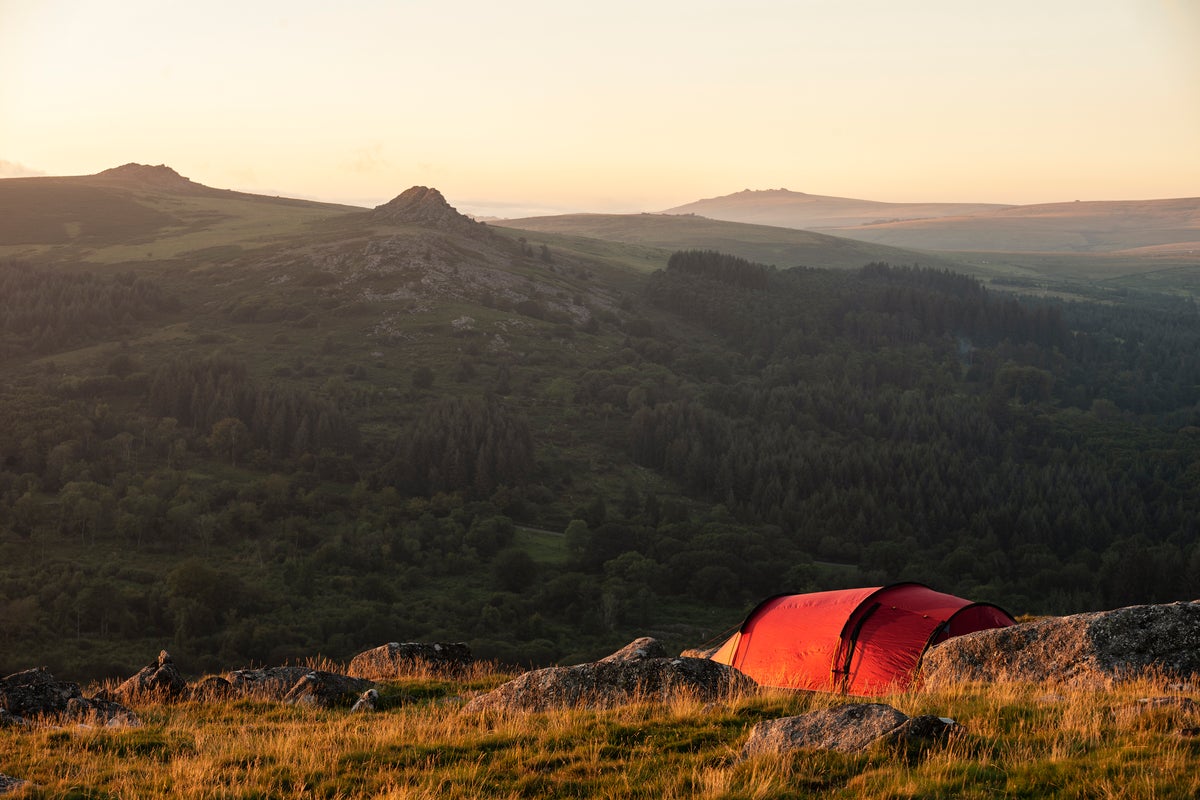A wealthy landowning couple have lost a Supreme Court case to restrict wild camping on Dartmoor – in the latest twist in the dispute over public access to the moor.
The bitter dispute began when Alexander and Diana Darwall’s lawyers argued that some campers were causing problems to livestock and the environment.
The couple, who keep cattle on a 3,450-acre estate in the southern part of Dartmoor, sought and won a High Court to stop people wild camping on the national park in Devon, without landowner consent.
But that ruling was overturned at the Court of Appeal a few months later – and on Wednesday, the pair lost their challenge against it at the Supreme Court.
The case hinged on the interpretation of the Dartmoor Commons Act 1985, which says “the public shall have the right of access to the commons on foot and on horseback for the purpose of open-air recreation” on the commons.
Lawyers for Mr and Mrs Darwall said the wording in the Act only allowed walking and horse riding.
But in their judgment, Lords Sales and Stephens said the law the concept of “open-air recreation” was wide. “It is not confined to recreation taken by means of walking or riding,” they ruled.
The high-profile case is seen as a test case for countryside access, with campaigners hopeful it will now mean greater access rights for walkers and campers across the country.
South Devon Lib Dem MP Caroline Voaden told The Independent: “I’m absolutely thrilled with this ruling. It is a vindication of something we’ve all known for a long time: that the stars are for everyone, and that access to nature is not a nice to have, but a fundamental necessity for a happy, healthy life.

“It’s a shame this had to be tested yet again in the courtroom. Now this is over, I hope we can begin work to extend our right to wild camp beyond Dartmoor. In opposition, Labour spoke about extending the right to wild camp across the UK. I hope they will put those words into action and expand access rights for walkers and campers across the country.”
The ruling largely focused on the wording in the Dartmoor Commons Act 1985, that says “the public shall have the right of access to the commons on foot and on horseback for the purpose of open-air recreation”.
In written submissions, Timothy Morshead KC, for Mr and Mrs Darwall, had said the act only gives the public access on foot and horseback “which naturally means walking and riding”.
However, barristers for the Dartmoor National Park Authority, which opposed the move, said that the phrase “on foot” means access should be pedestrian and not by means of a vehicle.
The DNPA also disputed the concerns of damage caused by camping, describing the reported impact to land and vegetation as “absurd”.
The legal battle started in January 2023, when the Darwalls won their High Court case that ruled the law did not give people the right to pitch tents overnight without landowners’ permission.
However, just months later the Court of Appeal overturned this decision, finding the law gave people “the right to rest or sleep on the Dartmoor Commons, whether by day or night and whether in a tent or otherwise” as long as byelaws are followed.
This is a breaking story – more to follow





